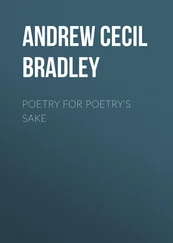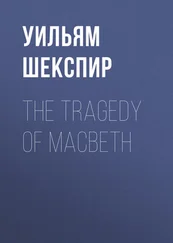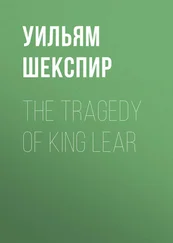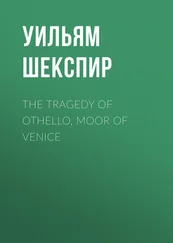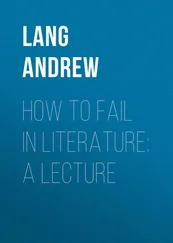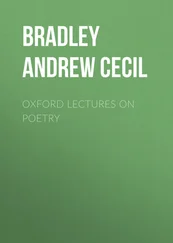Andrew Cecil Bradley - Shakespearean Tragedy - Lectures on Hamlet, Othello, King Lear, Macbeth
Здесь есть возможность читать онлайн «Andrew Cecil Bradley - Shakespearean Tragedy - Lectures on Hamlet, Othello, King Lear, Macbeth» — ознакомительный отрывок электронной книги совершенно бесплатно, а после прочтения отрывка купить полную версию. В некоторых случаях можно слушать аудио, скачать через торрент в формате fb2 и присутствует краткое содержание. Жанр: Биографии и Мемуары, foreign_antique, на английском языке. Описание произведения, (предисловие) а так же отзывы посетителей доступны на портале библиотеки ЛибКат.
- Название:Shakespearean Tragedy: Lectures on Hamlet, Othello, King Lear, Macbeth
- Автор:
- Жанр:
- Год:неизвестен
- ISBN:нет данных
- Рейтинг книги:5 / 5. Голосов: 1
-
Избранное:Добавить в избранное
- Отзывы:
-
Ваша оценка:
- 100
- 1
- 2
- 3
- 4
- 5
Shakespearean Tragedy: Lectures on Hamlet, Othello, King Lear, Macbeth: краткое содержание, описание и аннотация
Предлагаем к чтению аннотацию, описание, краткое содержание или предисловие (зависит от того, что написал сам автор книги «Shakespearean Tragedy: Lectures on Hamlet, Othello, King Lear, Macbeth»). Если вы не нашли необходимую информацию о книге — напишите в комментариях, мы постараемся отыскать её.
Shakespearean Tragedy: Lectures on Hamlet, Othello, King Lear, Macbeth — читать онлайн ознакомительный отрывок
Ниже представлен текст книги, разбитый по страницам. Система сохранения места последней прочитанной страницы, позволяет с удобством читать онлайн бесплатно книгу «Shakespearean Tragedy: Lectures on Hamlet, Othello, King Lear, Macbeth», без необходимости каждый раз заново искать на чём Вы остановились. Поставьте закладку, и сможете в любой момент перейти на страницу, на которой закончили чтение.
Интервал:
Закладка:
5
Let us turn, then, to this idea. It brings into the light those aspects of the tragic fact which the idea of fate throws into the shade. And the argument which leads to it in its simplest form may be stated briefly thus: 'Whatever may be said of accidents, circumstances and the like, human action is, after all, presented to us as the central fact in tragedy, and also as the main cause of the catastrophe. That necessity which so much impresses us is, after all, chiefly the necessary connection of actions and consequences. For these actions we, without even raising a question on the subject, hold the agents responsible; and the tragedy would disappear for us if we did not. The critical action is, in greater or less degree, wrong or bad. The catastrophe is, in the main, the return of this action on the head of the agent. It is an example of justice; and that order which, present alike within the agents and outside them, infallibly brings it about, is therefore just. The rigour of its justice is terrible, no doubt, for a tragedy is a terrible story; but, in spite of fear and pity, we acquiesce, because our sense of justice is satisfied.'
Now, if this view is to hold good, the 'justice' of which it speaks must be at once distinguished from what is called 'poetic justice.' 'Poetic justice' means that prosperity and adversity are distributed in proportion to the merits of the agents. Such 'poetic justice' is in flagrant contradiction with the facts of life, and it is absent from Shakespeare's tragic picture of life; indeed, this very absence is a ground of constant complaint on the part of Dr. Johnson. Δράσαντι παθειν, 'the doer must suffer'– this we find in Shakespeare. We also find that villainy never remains victorious and prosperous at the last. But an assignment of amounts of happiness and misery, an assignment even of life and death, in proportion to merit, we do not find. No one who thinks of Desdemona and Cordelia; or who remembers that one end awaits Richard III. and Brutus, Macbeth and Hamlet; or who asks himself which suffered most, Othello or Iago; will ever accuse Shakespeare of representing the ultimate power as 'poetically' just.
And we must go further. I venture to say that it is a mistake to use at all these terms of justice and merit or desert. And this for two reasons. In the first place, essential as it is to recognise the connection between act and consequence, and natural as it may seem in some cases ( e.g. Macbeth's) to say that the doer only gets what he deserves, yet in very many cases to say this would be quite unnatural. We might not object to the statement that Lear deserved to suffer for his folly, selfishness and tyranny; but to assert that he deserved to suffer what he did suffer is to do violence not merely to language but to any healthy moral sense. It is, moreover, to obscure the tragic fact that the consequences of action cannot be limited to that which would appear to us to follow 'justly' from them. And, this being so, when we call the order of the tragic world just, we are either using the word in some vague and unexplained sense, or we are going beyond what is shown us of this order, and are appealing to faith.
But, in the second place, the ideas of justice and desert are, it seems to me, in all cases—even those of Richard III. and of Macbeth and Lady Macbeth—untrue to our imaginative experience. When we are immersed in a tragedy, we feel towards dispositions, actions, and persons such emotions as attraction and repulsion, pity, wonder, fear, horror, perhaps hatred; but we do not judge . This is a point of view which emerges only when, in reading a play, we slip, by our own fault or the dramatist's, from the tragic position, or when, in thinking about the play afterwards, we fall back on our everyday legal and moral notions. But tragedy does not belong, any more than religion belongs, to the sphere of these notions; neither does the imaginative attitude in presence of it. While we are in its world we watch what is, seeing that so it happened and must have happened, feeling that it is piteous, dreadful, awful, mysterious, but neither passing sentence on the agents, nor asking whether the behaviour of the ultimate power towards them is just. And, therefore, the use of such language in attempts to render our imaginative experience in terms of the understanding is, to say the least, full of danger. 13
Let us attempt then to re-state the idea that the ultimate power in the tragic world is a moral order. Let us put aside the ideas of justice and merit, and speak simply of good and evil. Let us understand by these words, primarily, moral good and evil, but also everything else in human beings which we take to be excellent or the reverse. Let us understand the statement that the ultimate power or order is 'moral' to mean that it does not show itself indifferent to good and evil, or equally favourable or unfavourable to both, but shows itself akin to good and alien from evil. And, understanding the statement thus, let us ask what grounds it has in the tragic fact as presented by Shakespeare.
Here, as in dealing with the grounds on which the idea of fate rests, I choose only two or three out of many. And the most important is this. In Shakespearean tragedy the main source of the convulsion which produces suffering and death is never good: good contributes to this convulsion only from its tragic implication with its opposite in one and the same character. The main source, on the contrary, is in every case evil; and, what is more (though this seems to have been little noticed), it is in almost every case evil in the fullest sense, not mere imperfection but plain moral evil. The love of Romeo and Juliet conducts them to death only because of the senseless hatred of their houses. Guilty ambition, seconded by diabolic malice and issuing in murder, opens the action in Macbeth . Iago is the main source of the convulsion in Othello ; Goneril, Regan and Edmund in King Lear . Even when this plain moral evil is not the obviously prime source within the play, it lies behind it: the situation with which Hamlet has to deal has been formed by adultery and murder. Julius Caesar is the only tragedy in which one is even tempted to find an exception to this rule. And the inference is obvious. If it is chiefly evil that violently disturbs the order of the world, this order cannot be friendly to evil or indifferent between evil and good, any more than a body which is convulsed by poison is friendly to it or indifferent to the distinction between poison and food.
Again, if we confine our attention to the hero, and to those cases where the gross and palpable evil is not in him but elsewhere, we find that the comparatively innocent hero still shows some marked imperfection or defect,—irresolution, precipitancy, pride, credulousness, excessive simplicity, excessive susceptibility to sexual emotions, and the like. These defects or imperfections are certainly, in the wide sense of the word, evil, and they contribute decisively to the conflict and catastrophe. And the inference is again obvious. The ultimate power which shows itself disturbed by this evil and reacts against it, must have a nature alien to it. Indeed its reaction is so vehement and 'relentless' that it would seem to be bent on nothing short of good in perfection, and to be ruthless in its demand for it.
To this must be added another fact, or another aspect of the same fact. Evil exhibits itself everywhere as something negative, barren, weakening, destructive, a principle of death. It isolates, disunites, and tends to annihilate not only its opposite but itself. That which keeps the evil man 14prosperous, makes him succeed, even permits him to exist, is the good in him (I do not mean only the obviously 'moral' good). When the evil in him masters the good and has its way, it destroys other people through him, but it also destroys him . At the close of the struggle he has vanished, and has left behind him nothing that can stand. What remains is a family, a city, a country, exhausted, pale and feeble, but alive through the principle of good which animates it; and, within it, individuals who, if they have not the brilliance or greatness of the tragic character, still have won our respect and confidence. And the inference would seem clear. If existence in an order depends on good, and if the presence of evil is hostile to such existence, the inner being or soul of this order must be akin to good.
Читать дальшеИнтервал:
Закладка:
Похожие книги на «Shakespearean Tragedy: Lectures on Hamlet, Othello, King Lear, Macbeth»
Представляем Вашему вниманию похожие книги на «Shakespearean Tragedy: Lectures on Hamlet, Othello, King Lear, Macbeth» списком для выбора. Мы отобрали схожую по названию и смыслу литературу в надежде предоставить читателям больше вариантов отыскать новые, интересные, ещё непрочитанные произведения.
Обсуждение, отзывы о книге «Shakespearean Tragedy: Lectures on Hamlet, Othello, King Lear, Macbeth» и просто собственные мнения читателей. Оставьте ваши комментарии, напишите, что Вы думаете о произведении, его смысле или главных героях. Укажите что конкретно понравилось, а что нет, и почему Вы так считаете.





